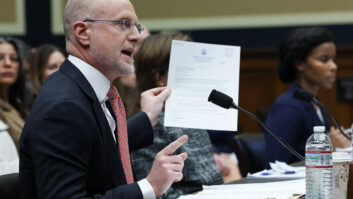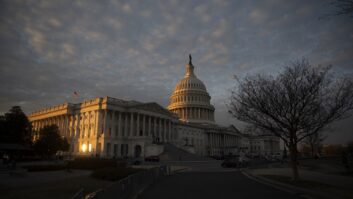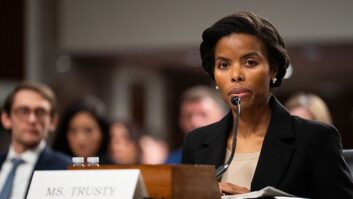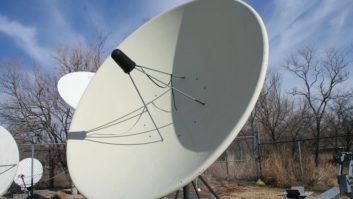This story serves as a followup to our Jan. 5 story “FCC Seeks to Enhance DIRS Reporting.”
The FCC is considering imposing new reporting mandates on broadcasters so it can better determine the condition of communication systems following natural disasters. It has been talking about the idea of such a requirement for awhile and appears to be getting serious about it. But it is asking for more information before doing so.
If eventually adopted, new rules would require radio and TV broadcasters to file operational status updates with the FCC following disasters like hurricanes and wildfires.
For now, the FCC is preparing to vote at its monthly meeting on Jan. 24 on whether to require other types of companies, including cable TV, wireless service providers and interconnected VoIP providers, to report outages following disasters. The draft order does not include broadcasters.
But an accompanying Second Further Notice of Proposed Rulemaking, also still in draft form, outlines a possible further change. If it is adopted this month, the FCC would then take comment on a proposal to add mandatory reporting for broadcasters using the Disaster Information Reporting System (DIRS). It also discusses a possible requirement for stations to begin reporting outages to the FCC’s Network Outage Reporting System (NORS).
The commission says in the draft that it wants to collect additional feedback from the industry while studying the idea of mandates further. It also says it could ultimately decide on different requirements for large and small broadcasters.
“We propose requiring TV and radio broadcasters report in both NORS and DIRS based on the type and modality of certain broadcast infrastructures, and seek comment on this proposal,” the FCC says in the draft notice.
If a mandate eventually is adopted, the FCC estimates that required DIRS and NORS reporting would cost the broadcast industry roughly $33.7 million per year, most of that attributable to the new NORS requirement.
The FCC acknowledges in the draft that broadcasters generally oppose mandatory DIRS reporting. For example, National Public Radio says requiring broadcasters to report in DIRS “may detract from essential news operations that support the public.” And other broadcast organizations worry about what kind of an impact a new reporting mandate would have on smaller broadcasters.
The draft says the FCC understands small entities might be especially burdened by a mandate. “In light of concerns expressed for smaller providers, however, we seek comment on whether we should consider adopting different reporting requirements for small and large broadcasters and, if so, how should those lines be drawn.”
It may exempt low-power FMs from the notional mandate, the FCC says. The commission also acknowledges that some broadcasters have unique limitations on their number of employees and the technical and legal expertise of those employees in addressing regulatory matters.
Rounding out its draft remarks, the FCC emphasized that a voluntary system does not guarantee comprehensive and accurate information for response officials.
“We believe mandatory DIRS reporting for broadcasters could ensure a standardized and coordinated approach among entities potentially impacted by disasters, allowing authorities to make informed decisions about emergency response activities and avenues to communicate with the public during emergency situations,” the draft notice of proposed rulemaking says. “We believe this could be of particular significance given broadcasters’ role in the EAS.”
Broadcaster participation in the current, voluntary DIRS system has been lackluster, the FCC believes. At present, when DIRS is activated following a disaster, FCC staff typically only hear from 20 to 35% of stations, according to commission data.
The FCC draft says it “generally lacks timely insight into the resiliency of segments of the broadcast ecosystem.”
“We believe this to be a particular deficiency in light of the broadcast community’s critical role in the EAS and the need for emergency officials and the commission to be able to have information on, and insight into, the operational readiness of this system at a moment’s notice,” the proposed rulemaking states.
The draft notice (PS Docket 21-346) also asks whether radio and TV broadcasters should be required to supply the commission with “after action” reports detailing how their networks fared during an emergency or disaster event. In addition, it asks if providers should be required to report the location of mobile recovery assets during a disaster response.







